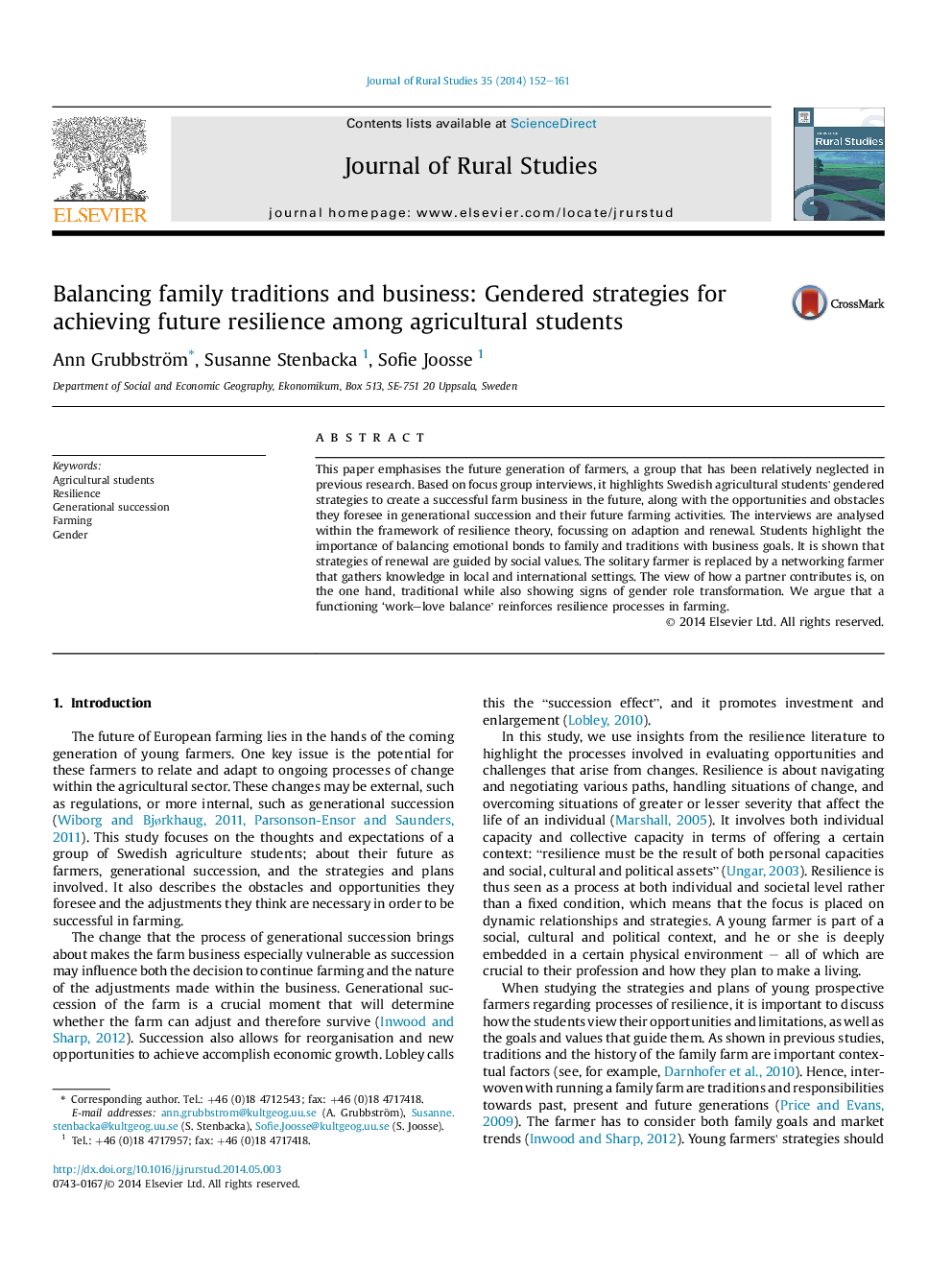| کد مقاله | کد نشریه | سال انتشار | مقاله انگلیسی | نسخه تمام متن |
|---|---|---|---|---|
| 92494 | 159975 | 2014 | 10 صفحه PDF | دانلود رایگان |
• The strategies of young farmers involve knowledge of a local and an international nature.
• Gender roles are traditional but also involve transforming gender practices.
• Networking is a prominent feature, and the ‘solitary farmer’ is not present in the discussion.
• The process of succession is used for learning and planning the business.
• A functional ‘work–love balance’ enhances resilience.
This paper emphasises the future generation of farmers, a group that has been relatively neglected in previous research. Based on focus group interviews, it highlights Swedish agricultural students' gendered strategies to create a successful farm business in the future, along with the opportunities and obstacles they foresee in generational succession and their future farming activities. The interviews are analysed within the framework of resilience theory, focussing on adaption and renewal. Students highlight the importance of balancing emotional bonds to family and traditions with business goals. It is shown that strategies of renewal are guided by social values. The solitary farmer is replaced by a networking farmer that gathers knowledge in local and international settings. The view of how a partner contributes is, on the one hand, traditional while also showing signs of gender role transformation. We argue that a functioning ‘work–love balance’ reinforces resilience processes in farming.
Journal: Journal of Rural Studies - Volume 35, July 2014, Pages 152–161
